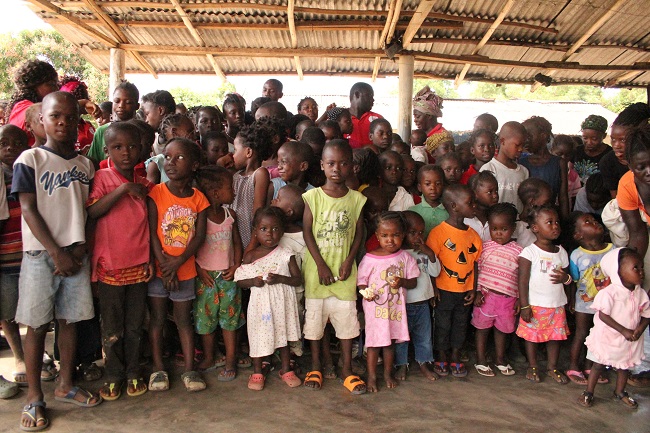AUCF donates to Liberian kids who survived Ebola
The Liberian chapter of African United For Children’s Future (AUCF) last Sunday provided some relief to over 50 Liberian children who survived the deadly ebola virus but most of whom lost their parents to the disease in the Banjor community, just outside the capital, Monrovia.
AUCF distributed several assorted food and nonfood items to children. The items distributed included rice, cooking oil, beans, Quaker oats, sugars, canned milk, seasoning cubes, chloride and soap.
Chapter Coordinator Ophelia Doe-Way disclose dthat the welfare of Liberian children was the organization’s primary objective.
Ms. Doe-Way said her organization was deeply concerned about the plight of Liberian children, especially during this crucial time when the country is faced with a serious health crisis.
“AUCF will not sit on the fence when it comes to the plight of Liberian children. We will continue working with others partners here in addressing the concerns of children here,” she pointed out.
She urged residents of Banjor Community to follow the prevented methods lay down by health workers in order to see how a survivor can be part of the society.
Ms. Doe-Way reaffirmed AUCF’s commitment to support local Liberian efforts to end Ebola and keep children healthy and safe in 2015.
AUCF partnered with several groups that provided books and educational materials to kids at home when schools were closed.
AUCF, a non-profit, based in the United State with chapters in Liberia , Sierra Leone and Ghana was founded to provide services and education in the areas of HIV/AIDS, domestic violence, substance abuse, teen pregnancy, criminal behavior and other social issues affecting the youth.
The organization has reached out to children affected by war and violence in their communities to develop friendships through after-school programs
AUCF believes that children should enjoy their childhood. The organization hopes to see children
learn how to communicate effectively across cultural boundaries, learn to appreciate differences and work on non-violent, co-operative ways of handling conflicts.
Text & Photo: Peter N. Toby


